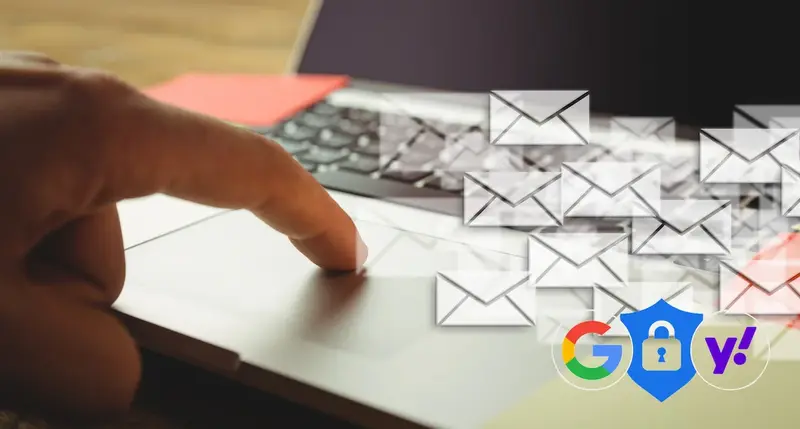
Table of contents
We have news in eEvidence that improves your communication! With the increase in spam, several free email providers have adopted new requirements and implemented strict enforcement of the DMARC protocol. Among them: iCloud, Protonmail, Google/Gmail, and Yahoo.
The problem: your emails go to spam or are denied
Adopting the DMARC protocol allows domain owners to ensure that emails sent to recipients have a legitimate origin. This way, the recipient can be sure that the email received is not phishing.
However, this affects messages sent by alternative providers such as eEvidence, which could cause delivery to be denied.
If the domain you use is your property, you can configure simple DNS records to use our service. But what happens when you are using a free domain or one that you do not own and cannot manage DNS for?
The solution: eEvidence virtual account to the rescue
If you use a free domain with DMARC enabled, we will create a unique, custom variant of your email address based on an eEvidence domain name. You will send your registered email as usual, but this is what happens once we receive it:
- We will convert your account to an eEvidence virtual address. For example, “John Smith” jsmith_sample@gmail.com would become “John Smith” jsmith_sample=gmail.com@eevid.email
- For recipients, this function will be mostly invisible: if your name usually appears as sender, we will keep it.
- If the recipient clicks Reply, they will reply directly to your original account, e.g. jsmith_sample@gmail.com
- If someone writes to the virtual address by mistake, they will be notified to contact your original account.
The eEvidence virtual email address allows us to continue registering your communications without affecting integrity or reliability.
Frequently Asked Questions (FAQ)
What does error 550-5.7.X mean?
This error indicates that the recipient’s server has rejected your email because it did not comply with the sender domain’s DMARC policy.
Do I need a virtual account if I own my domain?
No. If you own your domain, you can configure SPF, DKIM, and DMARC records in your DNS to comply with the requirements.
Will recipients notice the virtual account?
No. Recipients will see your usual display name (e.g., John Smith). Replies and interactions remain seamless.
Conclusion
DMARC compliance is increasingly enforced by major providers, and ignoring it can mean undelivered messages. With eEvidence virtual accounts, you guarantee the delivery of your registered emails, even if you use a free or unmanaged domain.
Ensure your communications remain reliable, secure, and legally valid. Contact our support team today and discover how virtual accounts can protect your business.
Ready to get started?
Contact us to share your business project or register now to start trying our services today
